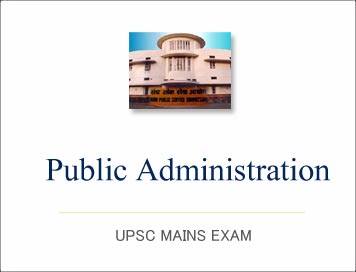Public Administration Mains 2023 : Solved Paper-1 (Question: 2)

Public Administration Mains 2023 : Solved Paper Question Paper-1 (Question-2)
SECTION-A
2. (a) Follett firmly advocated for cultivating interdependence and collaboration among individuals as the key to resolving conflicts and establishing more harmonious and all encompassing social structures. Discuss. 20
ANSWER: ONLY FOR COURSE MEMBERS
(b) Minnowbrook III emphasized the importance of empirical research in generating valuable insights for public administration and recognized the need to tailor education in the field to different regional contexts. Examine. 15
ANSWER: ONLY FOR COURSE MEMBERS
(c) "Public-Private Partnerships (PPPs) have been justified in various ways over time that seek to privatize public services for the profit of private entities." Do you agree? 15
Public-Private Partnerships (PPPs) are long-term arrangements between a government and a private sector institution, that involve private capital financing, designing, implementing, and operating public projects and services.
PPPs have been justified in various ways over time, such as:
• PPPs can improve the efficiency and effectiveness of public service delivery, by leveraging the technology, innovation, and management skills of the private sector.
• PPPs can reduce the fiscal burden and risk of the public sector, by transferring some of the costs and responsibilities to the private sector.
• PPPs can enhance the quality and responsiveness of public services, by introducing market mechanisms, such as competition, customer orientation, and performance incentives.
• PPPs can increase the access and affordability of public services, by offering different modes and channels of service delivery, and by providing subsidies or guarantees to the users.
• PPPs can foster the collaboration and cooperation between the public and private sectors, by creating a mutual and reciprocal relationship, and by involving various stakeholders in the decision-making and problem-solving processes.
However, PPPs have also been criticized in various ways over time, such as:
• PPPs can undermine the democratic values and principles of the public sector, by creating a gap between the officials and the citizens, and limiting the participation and transparency of the decision-making process.
• PPPs can erode the professionalism and ethics of public servants, by exposing them to market pressures, conflicts of interest, and corruption.
• PPPs can create new problems and challenges for the public sector, by increasing the complexity, fragmentation, and uncertainty of the governance system.
• PPPs can compromise the public interest and the common good, by prioritizing the profit and the efficiency of the private sector over the equity and the quality of the public sector.
• PPPs can exploit the public and the users, by charging high fees, providing low standards, or delivering poor outcomes.
I think that PPPs have been justified and criticized in various ways over time that reflect the advantages and disadvantages, opportunities and risks, benefits and costs of PPPs for the public sector and the society at large. PPPs are not a monolithic or universal model, but a diverse and dynamic phenomenon that varies across time, space, and sectors. PPPs require careful analysis, adaptation, and evaluation to ensure their suitability and sustainability for the public interest and the common good.
